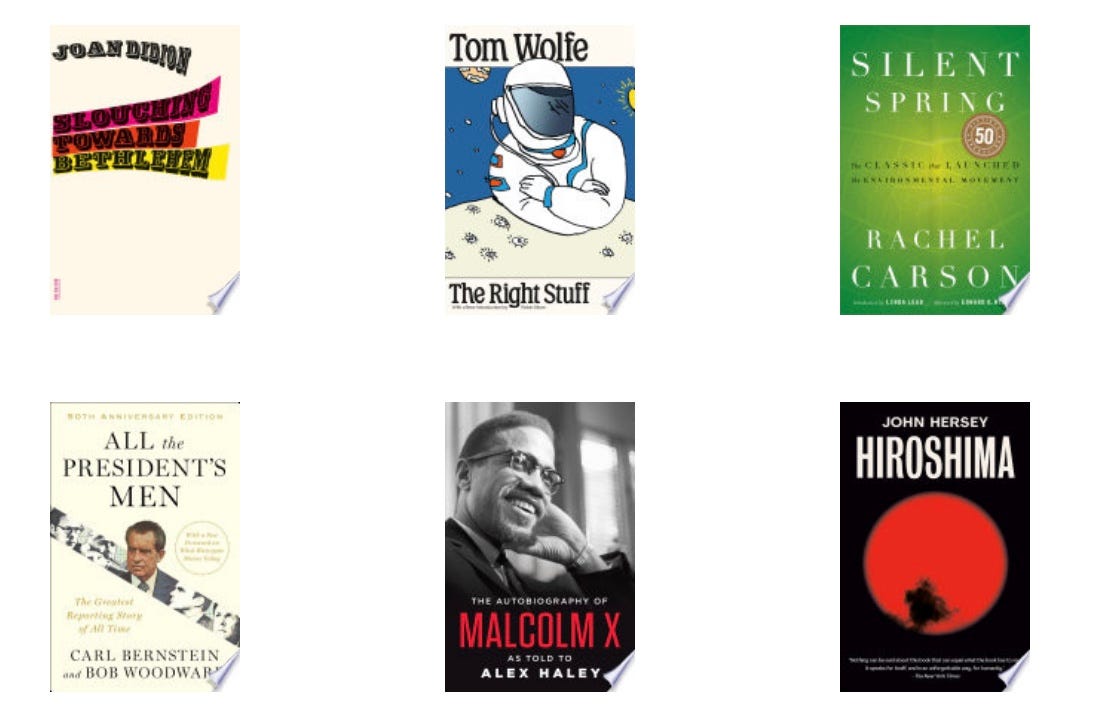ChatGPT is Exposing Everything Wrong with How High Schools Teach Writing
Or: What I wish I'd learned in my high school English classes instead of the 5-paragraph essay
We’ve all heard the concerns that generative AI, like ChatGPT, will rob future generations their abilities to write or think critically. Remember the panic of late 2022? Within weeks of OpenAI unveiling its chat bot, universities and high school administrators moved to ban the technology. One of the immediate fears was homework: students were going to use AI to write essays or otherwise cheat on take-home assignments.
Fast forward to 2025 and many of those same schools have since reversed their bans. The standard line is that educators recognize it’s better to adapt to an inevitable technology than fight it.
But I don’t think those fears of cheating from 2022 were misplaced at all. I got to thinking about this after listening to a recent episode of the (excellent) podcast Search Engine. In the episode, “Playboi Farti and his AI Homework Machine,” podcast host PJ Vogt cites a late 2024 study which found that 70 percent of America’s high school students have used AI for schoolwork. Granted, that use ranges from outsourced writing—having AI generate essays or fill in homework responses—to using the technology to brainstorm, conduct research, or check grammar. But make no mistake that there’s plenty of cheating going on. Vogt describes how there’s an entire cottage industry of influencers on TikTok providing how-to guides on using generative AI to cut corners on homework or essays without getting caught.
As one pseudonymous highschooler (the “Playboi Farti” from the episode title) puts it: “Why wouldn’t I use it?” The young man appears completely unconcerned that handing over the task of writing to AI might impair his ability to think clearly later in life. In fact, he tells Vogt that generative AI for writing is basically what a calculator is to an accountant—it spits out the answers you need and saves time.
I found myself squirming while listening to this, and Vogt clearly was, too. But one thing I love about the episode is that the host takes his young interviewee’s assertions seriously. About a third of the way through the episode, Vogt suddenly shifts focus: maybe the problem isn’t that young people are using generative AI in lieu of writing. Maybe the real problem is how we’re teaching writing in our schools.
This is where I nodded in agreement. If I think back to my time in high school, I never imagined I might grow up one day to become a career writer. Writing assignments sucked. Sucked balls, as my friends and I would’ve said (this was the mid-to-late aughts).
A big part of that was the dreaded 5-paragraph essay: thesis, 3 body paragraphs, conclusion. This is the same formulaic structure that schools teach kids today, along with a whole host of unbreakable grammar rules that kill off creativity and voice. Everything is made to fit through a square hole, even though the 5-paragraph essay and many of the grammar concepts are arbitrary constraints. Like don’t write any fragmented or incomplete sentences (this sentence would have definitely been graded down).
More to the point, the assignments have always been boring! I can remember learning over and over again how to state an argument and present supporting evidence, but never how to write in my own voice or tailor an essay for a specific audience. This is ironic when I also read some great literature—Invisible Man, 1984, The Old Man and the Sea —where the authors used style and verve and broke many of the stylistic constraints we were beholden to. Instead, every writing prompt I received seemed to be about analysis or rhetorically proving a point, which are both very capitalistic ways of thinking. What about telling a story?
Somehow, it wasn’t until after college in 2011, when I discovered literary journalism, that I realized nonfiction writing could borrow from the techniques of literature. Even then, it wasn’t until the narrative podcast boom, after I wrote my first podcast series The Syndicate, when I understood how writing for the ear, and reading my writing out loud, could help me find my voice and rhythm.
All of this is to say: of course high schoolers are using ChatGPT to write their essays. If the writing we’re having them do is formulaic, then it really does resemble a calculator. In that sense, I’m with Playboi Farti: why not use it?
We need a systems change. And while I understand teachers are bound by the curriculums and standardized tests set by their states, what if we could make writing fun for students? I certainly don’t have all the answers. But when I think back on high school, here are a few things I wish I’d learned or read in my English classes:
-Writing for the ear. Ignoring grammar rules just for a moment, what would students’ writing look like if they wrote just like they talked? What kind of style or voice might emerge—and can they incorporate some of that sensibility into their more writing? Could they then bring individual style into more polished prose? Maybe this experiment would backfire. But maybe it could produce a unique writing voice.
-Storytelling as a persuasive device. What if, instead of a dry opener, an essay began with a compelling narrative hook? What if the thesis came lower in the essay, and around it the writer was encouraged to use scenes and dialogue of real people to persuade an audience of a position? What if emotion could be used as a rhetorical device? I’ve heard that some high schools today teach Into the Wild, but mine didn’t. Besides memoir (Anne Frank) I can’t remember ever reading narrative nonfiction in high school, or even being alerted that this was a style of writing (no wonder so few Americans seek, or even know about, narrative journalism outside of Netflix docuseries). Which brings me to my next point:

-Narrative nonfiction: Here are just some of the books, articles, and narrative audio pieces I wish I’d been assigned back in the aughts, with instruction not just on their themes, but their writing and storytelling techniques: “The Falling Man,” Slouching Towards Bethlehem, Hiroshima, All the President’s Men, The Right Stuff, Silent Spring, “The House on Loon Lake,” and The Autobiography of Malcolm X. And if I were to add works published after I graduated high school, I’d throw in: Behind the Beautiful Forevers, The Immortal Life of Henrietta Lacks, “The Living Room,” and The Lost City of Z.
What about you? Was your writing experience in high school different than mine (or Playboi Farti’s)? Perhaps you want to defend the 5 paragraph essay? And what, if anything, do you wish you’d been taught? Feel free to leave a comment below!



it's wild out there. absolutely makes sense to take shortcuts for boring crap, and it absolutely will dull senses some of us counter-intuitively developed by slamming our heads into boring walls. loved this list of recs, excited to check one or two of them out!